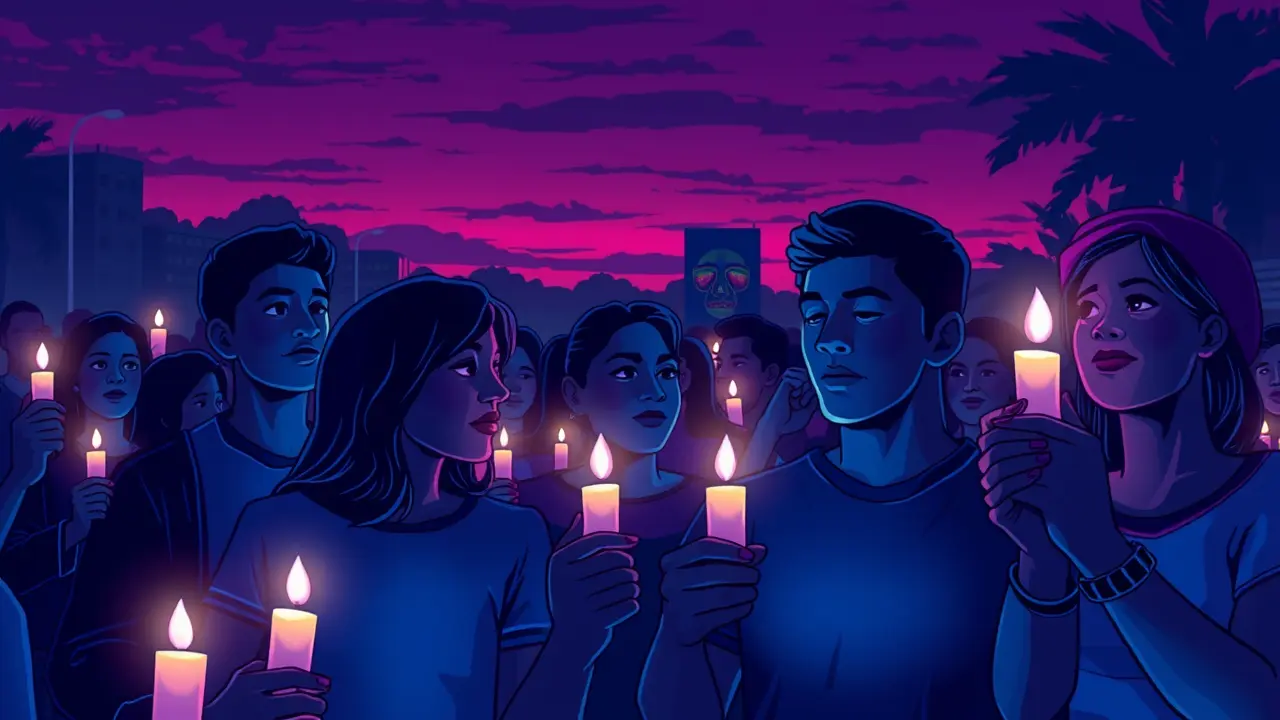Venezuelans in Colombia Demand Release of Political Prisoners
Under the bruised purple of a Bogotá twilight, they gathered—not with the roaring chants of a typical protest, but with the hushed, determined murmur of prayer. Hundreds of Venezuelans, their faces illuminated by the soft glow of candle flames flickering in the evening breeze, stood in solemn vigil this past Saturday, their collective voice a poignant demand cutting through the political noise: the immediate and unconditional release of the political prisoners still languishing in the jails of their homeland.This was not merely a demonstration; it was a raw, emotional outcry from a diaspora that has been forged in the crucible of exile, a community bound by the shared trauma of a nation fractured by Nicolás Maduro’s regime. The scene was a powerful tableau of the human cost of authoritarianism, where the personal and the political are inextricably linked.Many of those present carried with them the specific, haunting names of loved ones—university students arrested for posting dissenting views on social media, local community organizers seized during raids for distributing humanitarian aid, journalists who dared to report on corruption, and former military personnel accused of conspiracy simply for questioning the chain of command. Their stories, whispered between prayers, painted a harrowing picture of a systematic campaign of persecution designed to silence opposition through fear and brutal reprisal.Reports from human rights organizations like Foro Penal and Provea detail conditions of profound inhumanity: detainees subjected to prolonged solitary confinement, denied adequate medical care for chronic illnesses, and subjected to psychological torture through mock executions and threats against their families. The strategic use of such treatment is a calculated tool of the state, a method to break the spirit not just of the individual behind bars, but of the entire community that remembers them.This vigil in Colombia, a nation that has generously opened its doors to over 2. 9 million Venezuelan migrants and refugees, represents a critical front in a broader, international struggle.It underscores how the crisis in Venezuela is no longer contained within its borders; its reverberations are felt across the continent, testing the resolve of regional democracies and international bodies. The Inter-American Commission on Human Rights has repeatedly condemned the Maduro government’s actions, yet diplomatic efforts have stalled, entangled in complex geopolitical rivalries and the frustrating inertia of non-binding resolutions.The consequences of this impasse are measured in human suffering. Every day a political prisoner remains incarcerated is a day the possibility of a negotiated democratic transition grows more distant, as the regime continues to consolidate power through coercion.The brave souls gathered in Bogotá, their prayers rising into the night air, are not just asking for mercy; they are issuing a fundamental challenge to the international community. They are demanding that the world look beyond the rhetoric of sovereignty and see the undeniable truth of broken lives and stolen futures. Their quiet vigil is, in fact, a deafening alarm, a reminder that the fight for freedom in Venezuela is being waged not only in the halls of power but in the hearts of its exiled children, whose hope, against all odds, refuses to be extinguished.
It’s quiet here...Start the conversation by leaving the first comment.
